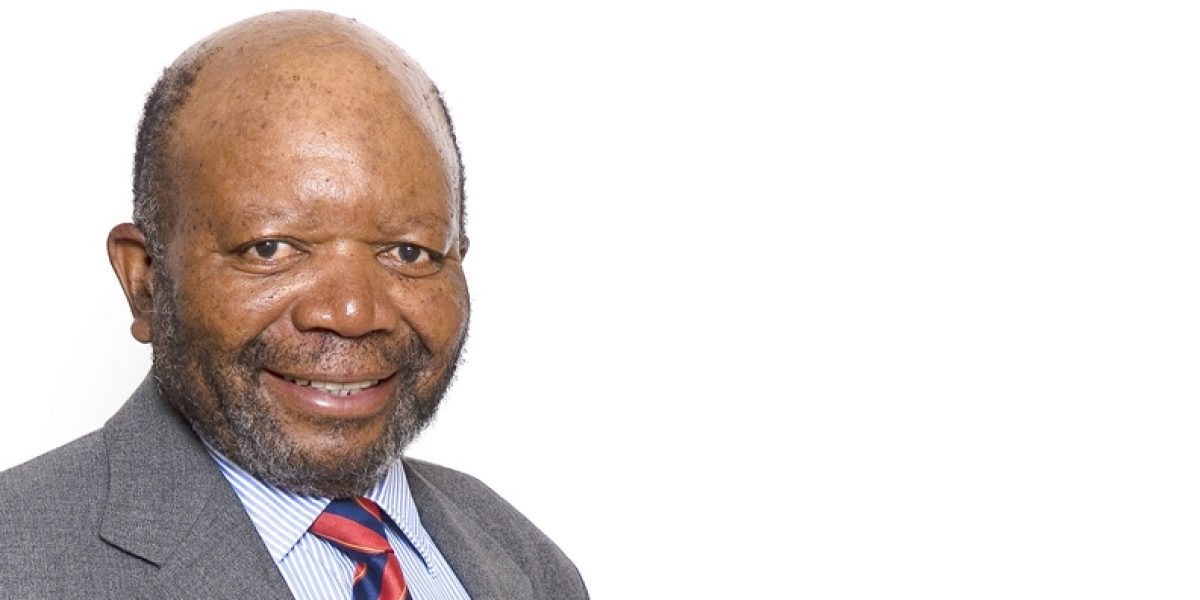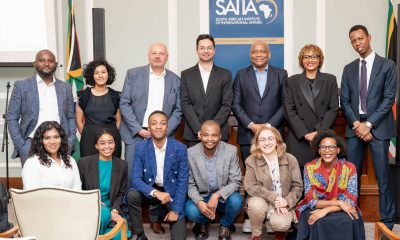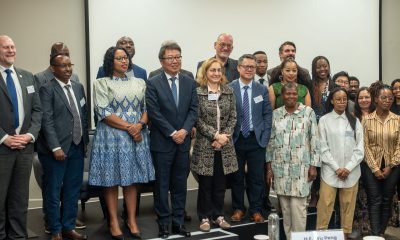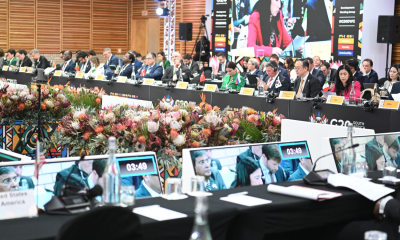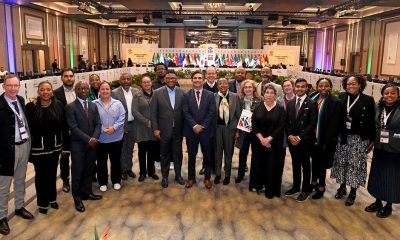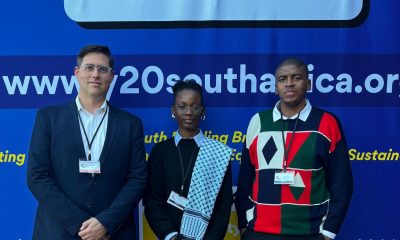If ever we needed proof that history does not move in a linear way, we’ve received it in abundance over the last year. The trajectory of world politics has turned off the smooth highway and entered unpaved and unmarked roads – from Brexit and the serious questioning of the future of the European Union, to the rising destruction of non-state actors such as ISIS, and the election of Donald Trump, whose unorthodox conduct and interpretation of diplomacy has many ‘atwitter’.
At no point in the past 80 years has the world been at greater risk of deepening military conflict and roll back of progress in reducing poverty and disease than today. This is a serious statement to make barely 18 months after two historic global agreements – the adoption of the Sustainable Development Goals and the Paris climate change agreement. Both of these are, at their core, about the provision of global public goods. To work they require international cooperation, which must be underpinned by a level of trust and a sense of fairness among all parties in processes and outcomes.
Unfortunately, the shift in a number of western societies to less tolerance and openness, and more protectionism and insularity, runs counter to this imperative. Furthermore, globalisation has been a positive force for development over several decades. Reverting to a world that may have existed 80 or 100 years ago, without significantly changing the structure of our societies, may not be as desirable as people think, nor as feasible. Turning inwards is not a solution; it’s an erosion of progress.
For some years now, we have known that globalisation has created both winners and losers, within and across countries. The impact of the global financial crisis brought that message home. Rising inequality made it clear that globalisation needed a human face. Larry Summers in a piece in the Financial Times last year spoke about the fact that countries should be allowed to ‘pursue their citizens’ economic welfare as a primary objective but where their ability to harm the interests of citizens elsewhere is circumscribed’.
The wave of populism with its ‘promise’ of a panacea to people’s fears (whether these are socio-economic, political or cultural) presages the opposite of Summers’ injunction. The response by some to the refugee crisis is perhaps one of the most tragic displays of this. Where are the great statesmen and women? If we all focus on our own small patch of land, we will never be able to deal with the mammoth cross-border problems that require international cooperation and understanding. The same applies if we believe that our approach to international relations should be purely transactional.
President Xi Jinping’s speech at Davos earlier this year positioned him as a champion of globalisation against the seeming withdrawal of the US. But China itself has displayed deep protectionist instincts. On the other hand, as Britain departs from the EU, it has implied that it will do what it takes to remain competitive, with hints that it might adopt ‘race-to-the-bottom’ regulation on corporate taxation. This might not be good for the EU, but it would be even worse for developing countries that are already arguing for a global regulatory environment that reduces illicit financial flows and the loopholes allowing multinationals to pay taxes in more favourable tax jurisdictions.
Does this all signal the failure of multilateralism? Not necessarily. Multilateralism, conducted primarily through formal international organisations, has played an important role in security, economics, trade, regulation and finance. But more recently, and ironically as the world has become more multipolar, decision-making and the effective implementation thereof has become much more difficult. While not all the global rules have been good for Africa, we should fear the system’s erosion in the face of global, regional and domestic challenges.
Recovering our moral compass
South Africa rarely uses the term ‘global public goods’ to describe its actions on the regional and international stage; the truth is though that we have been a supporter and facilitator of their provision. This has been evident through our work on multilateral agreements from security and human rights to global economic governance.
We are a fairly small country in global terms, but because of our history and the way we chose to reengage constructively with the rest of the world we have been regarded as significant global players. But this won’t last forever and we need to sustain it by encouraging bold and brave ideas in multilateral forums, avoiding polarisations, and helping to forge agreement.
Sadly our domestic politics of the last few years have taken their toll on perceptions and projection of our foreign policy. While we continue to make important contributions to the debates at the UN or on global economic governance, for example, our reputation has taken a huge knock. The battles to protect the President at all cost against impeachment have dominated public debates. The push from the populist left in the form of the Economic Freedom Fighters has forced the governing party to resort to populism too. There is fertile ground because of inequality and exclusion despite the enormous progress that has already been made in righting past wrongs. And thus state failure to address some of the structural challenges facing the economy is blamed on counter-revolutionary forces ranging from business to the Treasury. On the other hand, anti-competitive behaviour and collusion in the private sector must be dismantled. But thinking that the creation of new state enterprises, such as a State Bank, will solve this, fails to recognise the failures of existing state-owned enterprises.
Perhaps the biggest blow to our commitment to global norms and the significance of eradicating impunity was the announcement by the government of its intention to withdraw from the International Criminal Court. This was not so much about whether the ICC was a perfect institution but whether South Africa was prepared to turn its back on an important milestone in global norm evolution. In the absence of appropriate and functioning institutions in Africa to do just that and with the emasculation of the SADC Tribunal, one can be excused for being concerned about what this means for state impunity.
The ANC’s elective conference at the end of this year means that the leadership succession will dominate the body politic again. This is a great pity, because the world is at a crossroads. South Africa has invested substantial time and effort into the global system since 1994. We have an interest in retaining the integrity of a fair rules-based order.
Over the next few years, the global landscape will change significantly. We can be observers or active shapers. In the face of a more protectionist US, Europe is already looking more aggressively to ‘pivot’ economically to Asia. In Africa, AGOA runs to 2025. Let’s start laying the groundwork for the post-AGOA phase of US-SA/Africa trade relations. Let’s make sure Brexit enables a better deal with the UK. Let’s commit sincerely to making the Tripartite Free Trade Area functional. Let’s not abandon the task of strengthening African institutions and making the governance mechanism (APRM) work. And let’s work to banish impunity of political leaders.
In this milieu, policy institutes such as SAIIA play a role by highlighting the broader trends across the world and their consequences. Too often policy makers take a siloed approach to issues, not always seeing the linkages, the similarities and the implications. While post-truth politics militate against research and expertise, the challenge to think tanks is not to do less but to frame our research in more direct, accessible ways for both policy makers and the broader public. We too need to appreciate that emotion often cannot be countered by careful technical argument, but through dialogue that shows a real commitment to listen, understand and reflect that in our prescriptions.
For more about SAIIA’s National Council, click here.

